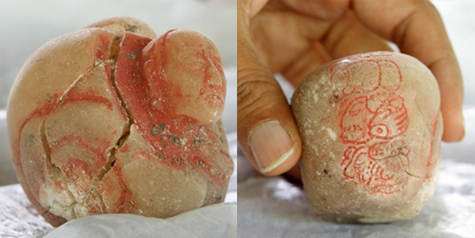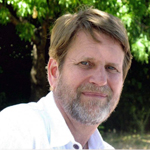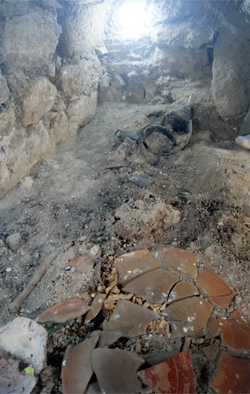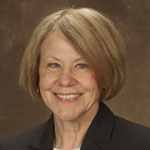Hastings+Chivetta
Rendering of the proposed state-of-the-art Gary and Rachel Sumers Fitness Center.
Washington University alumnus and trustee Gary Sumers and his wife, Rachel, have committed $12 million to help expand and modernize the Athletic Complex at Washington University in St. Louis and create the Gary and Rachel Sumers Recreation Center.
The project includes a complete 36,000-square-foot interior rejuvenation of historic Francis Gymnasium, site of the 1904 Olympics, as well as a 66,500-square-foot addition to the south side of Francis Gymnasium and an additional 20,000 square feet of improvements to the existing Athletic Complex.
The gift was announced at the Saturday night celebration of the launch of Leading Together: The Campaign for Washington University. Construction of the new addition and renovations are expected to be completed in 2015.
“Rachel and I are pleased to support the much-needed enhancements to the university’s Athletic Complex, which will create a facility equal to or exceeding the quality of those of our peer institutions in NCAA Division III,” says Sumers. “The rejuvenated complex will support the university’s already extraordinary student experience, help develop a stronger sense of community and promote healthy lifestyles and fitness. We believe this is a great investment in our future leaders.”
The addition to the Athletic Complex, last renovated and expanded in 1985, will offer sweeping views of Francis Field and house a three-court gymnasium with suspended running track, among many other recreational and athletic amenities.
The project will provide new spaces for intramurals, general university-wide fitness programs and team sport practices and workouts, as well as administrative offices, seminar and classroom areas and conference rooms.
“I was not an athlete growing up and do not come from a family of particular athletic skill or interest,” says Rachel Sumers. “However, as an undergraduate student I started working out in my university's gym and, although it was tough at first, over the years I grew to appreciate and value being physically fit. I believed then and I still believe that physical fitness is an important component of college life and life beyond academics."
The transformed Francis Gym, complete with a two-story lobby as a community gathering place, will celebrate its significant historic legacy and will be an investment for the next century as an accessible, welcoming center for a wide range of fitness, wellness and athletics amenities, according to Chancellor Mark S. Wrighton.
WUSTL
Gary and Rachel Sumers
“Gary and Rachel Sumers already have made a significant difference in the lives of many Washington University students by providing scholarships and through their involvement in Opening Doors to the Future: The Scholarship Initiative for Washington University,” says Wrighton. “Now, their support of the expansion of our athletic and recreation facilities will greatly enhance health and fitness opportunities for all who work and study on our campus and will play an important role in the recruitment of future students and student-athletes.”
Francis Gymnasium and Francis Field, both on the National Register of Historic Places, were the sites of the third Olympiad of the modern era in 1904, the first in the Western Hemisphere. Olympic events took place concurrently with the Louisiana Purchase Exposition, better known as the 1904 World’s Fair.
The historic Francis Gym, built of red Missouri granite and limestone trim and one of the first 10 buildings designed by university architects Cope and Stewardson, will be renovated and transformed into the state-of-the-art Gary and Rachel Sumers Fitness Center. The center will include cardiovascular equipment, training and meeting rooms and offices.
Together, these improvements will help create a revitalized southwest corner of the Danforth Campus. After renovation, visitors will enter the complex via a transformed set of doors at the western end of William Greenleaf Eliot Way, a walkway that begins near the middle of campus at Graham Chapel.
Other fitness and recreation enhancements included in the project are two multipurpose rooms for group exercise, a spinning studio, men’s and women’s recreation locker rooms, wellness service offices, recreation offices and a rock-climbing wall.
For the university’s renowned NCAA Division III varsity athletic programs, upgrades will include doubling the existing size of the sports medicine suite, improvements to varsity and visitors’ locker rooms, a renovated recreation gymnasium and additional meeting rooms.
“The Athletic Complex is a hub for the Washington University community,” says John Schael, who has served as the university’s athletic director since 1978. “As the largest indoor venue on the Danforth Campus, this facility hosts some of the most meaningful moments for Washington University students, from freshman convocation through graduation activities. It has served as the site for national championships, alumni reunions, a myriad of campus programs and four internationally televised presidential and vice presidential debates sponsored by the Commission on Presidential Debates.
“These improvements will extend its accessibility and greatly enhance the opportunities for our students to stay healthy and fit.”
About Gary and Rachel Sumers
Gary M. Sumers is senior managing director and chief operating officer in the Real Estate Group of New York-based Blackstone Group, a leading global alternative asset manager and financial advisory firm. A native of Teaneck, N.J., he was encouraged to attend Washington University by the son of his high school boss, a pharmacist.
He graduated Phi Beta Kappa in 1975 with a double major in history and political science, both in Arts & Sciences, spending his junior year at the London School of Economics. He later earned a law degree at Northwestern University.
Since joining the Blackstone Group in 1995, Sumers has led the company’s strategic asset management group, as well as overseeing financial reporting activities and property disposition activities.
Before joining Blackstone, Sumers was chief operating officer of General Growth Properties, and prior to that worked for JMB Institutional Realty Corp., where he was managing director in charge of asset management. Previously, he had practiced law in Chicago.
He has been an active Washington University alumnus, serving on the Arts & Sciences National Council and the New York City Regional Cabinet, among other volunteer roles. He was awarded a Distinguished Alumni Award at Founders Day in 2009 and won the 2012 New York Regional Award for outstanding professional achievement and service to Washington University.
For the just-launched Leading Together: The Campaign for Washington University, Sumers serves as a member of the New York City executive committee and as a member of the Arts & Sciences committee.
Sumers, who grew up in a “solidly middle class family,” has sponsored scholarships at Washington University for many years, including both an annual and an endowed scholarship in memory of his late mother, Joan. He has been active in the university’s scholarship initiative, Opening Doors to the Future, serving as co-chair of the New York City committee and as a member of the national committee for Arts & Sciences.
Rachel Sumers was raised in Santa Fe, N.M., and earned an undergraduate degree Phi Beta Kappa from the University of New Mexico in 1993. She earned a master’s in nutrition from Florida State University in 1998 and a law degree from New York University in 2002, as well as an LLM in taxation in 2005.
She began her law career as a tax associate at Simpson Thacher and Bartlett in New York from 2002-06 and worked as internal tax counsel at Goldman Sachs in New York from 2006-09.
She is involved in a number of charities and volunteer organizations, including serving as a member of the board and assistant treasurer for the Animal Rescue Fund of the Hamptons, providing pro bono legal services for asylum cases for Immigration Equality, and being a mentor for a student for a TEAK fellowship, which helps talented New York City students from low-income families gain admission to and succeed at top high schools and colleges. An avid athlete, she enjoys running, spinning, Pilates and weight training.
Gary and Rachel Sumers are sustaining charter members of the Danforth Circle Chancellor’s Level and life patrons of the William Greenleaf Eliot Society.
About Washington University in St. Louis
Washington University is counted among the world’s leaders in teaching and research, and it draws students and faculty to St. Louis from all 50 states and more than 110 nations. The total student body is nearly 14,000 undergraduate, graduate and professional students.
The approximately 3,400 faculty teach in seven schools: Arts & Sciences, Brown School, Olin Business School, Sam Fox School of Design & Visual Arts, School of Engineering & Applied Science, School of Law and School of Medicine. Twenty-three Nobel laureates have been associated with Washington University, with nine doing the major portion of their pioneering research there.
The university offers more than 90 programs and almost 1,500 courses leading to bachelor’s, master’s and doctoral degrees in a broad spectrum of traditional and interdisciplinary fields, with additional opportunities for minor concentrations and individualized programs.


























